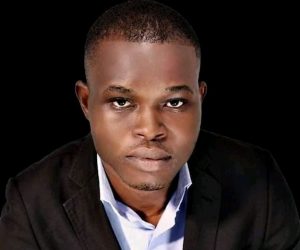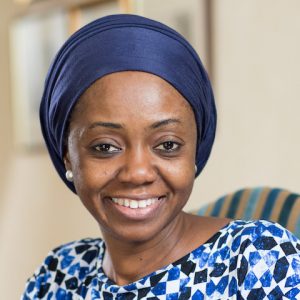School Cert Requirement For Political Office Not Enough, Says Gbajabiamila

Speaker of the House of Representatives, Femi Gbajabiamila believes the current constitutional provision where the educational qualification for elective offices is pegged at secondary school certificate should be increased.
The Speaker made the comment while delivering a paper titled ‘Building Back Better: Creating A New Framework For Tertiary Education In Nigeria In The 21st Century’ at the 52nd Convocation of the University of Lagos on Monday.
“I also sincerely believe that the National Assembly needs to look into section 131 (d) of the 1999 constitution with a view to increasing the minimum educational qualification for persons aspiring to be future Presidents of Nigeria and other top offices including the National Assembly as against the current minimum requirement of a Secondary School Certificate or its equivalent,” Gbajabiamila said.
READ ALSO: Salihu Lukman Resigns As DG APC Governors Forum
“As we have reduced the age for eligibility to contest those offices so also, we should increase the minimum educational requirement. It will be another step in reforming our electoral system and providing strong leadership for the country.”
The Speaker said he is of the opinion that the foundations of Nigeria’s educational system are still rooted in a different age.
According to the Speaker, the educational system the nation currently runs is designed to meet the social, economic and labour demands of a different societal and economic model which does not serve the present need.
Gbajabiamila bemoaned a situation where despite the change around the globe, Nigeria has not done enough in government, the academia, and society to adjust its education and skills acquisition system to meet these new realities.
The Speaker, who is an alumnus of the University of Lagos, said: “When we consider the problems of education infrastructure, access to educational opportunities, quality of instruction, the welfare of teachers, lecturers and professors, we will do well to remember that all of these factors matter only to the extent that they are necessary to build institutions that produce citizens who can advance the cause of Nigeria.
“Our world has changed. The old certainties from which we derived assurance and built our expectations no longer exist. The value of the extractive industries that have powered our economy has deteriorated. It continues to do so rapidly, as technological advances lead us toward a future where coal, crude and gas are replaced by renewable alternatives of solar, wind and water.
“For Nigerian citizens to thrive in this new world, participate fully and productively in the new global economy and benefit from rather than be consumed by the technological advancements that are changing our world, tertiary education in Nigeria must be prepared to embrace reinvention and adapt to disruption.
“In a digital age, where socioeconomic participation is based on intellectual ability and access to information, a purposeful and well-rounded education is a fundamental human right because the individual’s ability to participate fully in society depends almost entirely on the quality of education available to them.
“Unfortunately, it is still the case that the foundations of our educational system are rooted in a different age and designed to meet the social, economic and labour demands of a different societal and economic model. As the world has changed, we have not done enough in government, academia, and society to adjust our education and skills acquisition system to meet these new realities.”
Gbajabiamila stated that a good education produces citizens invested in the progress and wellbeing of their society with the wherewithal to take positive action to make those societies better.
“When we think about education policy, when we consider laws and implement directives relating to education in our country, particularly tertiary education, our highest objective must be to deliver an education system capable of producing this archetype of an individual”, he added.
Speaking further on the education sector, Gbajabiamila expressed optimism that it could be put back on the right track, as he offered some solutions to some of the problems.
He said: “What does this moment require of us? It requires first that we be honest about the scale of the challenges we face. Honesty about the scale of the challenges we face and the realities of our present circumstances free us to engage in the sort of radical thinking and innovation that would have been considered taboo just a few years ago.
“How do we move on from our present circumstances? Most national policy discussions of higher education focus on questions of structure and financing, understandably so because the problems in this regard are many and unresolved. However, there are essential issues of curriculum, teaching methods, assessment and fairness that should engage our minds too and be part of any reform propositions.
“Wholesale reviews of our curricula and teaching methods to situate our practices in the context of global labour needs is the bare minimum. This does not take away from the need to institute a programme of aggressive and sustained investment in the physical infrastructure of classrooms and lecture halls and technology hardware and software to facilitate information exchange and innovation.”
The Speaker was delighted that despite the disruption of the educational system in the country and elsewhere occasioned by the Covid-19 pandemic, UniLag was the first public tertiary institution to adopt virtual learning.
“This great institution conducted lectures, examinations and even the post-UTME virtually. Free data was also made available to Students. Hence ICT rescued the academic calendar of our institution. These are the sort of radical thinking and innovation needed in our citadels of learning”.
He advocated close collaboration between educational institutions and the organized private sector to have a better system.
“Tertiary institutions in Nigeria need to develop a new understanding of the changing nature of work and the future of employment and allow this new understanding to inform the nature of instruction and the substance of the education they provide. Collaboration between our higher institutions and the organised private sector is vital in this regard so that we can jointly rise to the demands of the moment.
“Across the world, a symbiotic twinning of academia with the private sector has allowed for the creation of knowledge hubs that drive innovation and economic advancement. California’s Stanford University has become both the training ground for Silicon Valley’s elite and the beneficiary of enormous contributions in manpower, financial resources, and networking opportunities that have turned the institution into a powerhouse for the ages.
“I have often wondered why similar arrangements have not been recreated in our environment. We can all easily agree that many universities in the country, private and public, would benefit significantly from such close contact with private sector energy, practice, and resources. What then mitigates against this level of close collaboration? Is it the existing laws? Is it reluctance on the universities’ part or the organised private sector itself? These are some of the questions we must ask and answer as we seek to reposition tertiary education in Nigeria to meet the demands of a changing world”, he added.
The lawmaker equally called for the strengthening of the industrial training experience for students and called on tertiary institutions to make practical training a part of undergraduate studies.
The Speaker explained that, “One area where we already have the basic framework for collaboration is the Industrial Attachment programmes. What we now need to do is to identify ways to improve on this. Tertiary institutions of learning should identify and partner with private sector organizations to provide practical experiences for students as part of their academic training throughout their course.
“This would significantly improve the current practice of requiring students to undergo this portion of their training in organizations that do not allow them to get the full benefit of the experience.
“Advancing our tertiary institutions into the 21st century demands that we do whatever is required in terms of changes to legislation, regulation, and/or policy to achieve this sort of closer synergy between the private sector and our educational and training institutions.
For the sake of our nation’s future, we cannot leave the ideals of ‘Building Back Better’ for the government alone to pursue.
“Even as we look outward, we must consider the possibilities for extensive and multi-dimensional collaboration within academia. Keeping in mind that the objective is to improve productivity, tertiary institutions need to engage with the possibility of integrating university courses across departments and disciplines, merging law with economics and technology, medicine with engineering and accounting, media with governance and administration and other such partnerships.
“We must also consider statutory and operational reforms to encourage closer collaboration between tertiary institutions, both public and private. Today, our tertiary institutions exist and operate primarily in independent silos. Alternative to this is an approach wherein tertiary institutions work as part of an interdependent network to establish a collaborative research and development ecosystem, training, and resource sharing. Multi-dimensional collaborations will increasingly be the key to building modern tertiary institutions in Nigeria, capable of holding their own in the modern education system.
“And then, there is the issue of how we finance tertiary education in Nigeria. This is an area of much controversy, which is understandable in a country such as ours. However, two things remain true. The first is that building the kind of institutions we need and desire will require significant investments. Secondly, the current approach is neither adequate nor sustainable as it heavily depends on subventions from the federal and state governments.
“Therefore, we must agree to use the instruments of policy and legislation to advance a new framework for funding tertiary education in our country. Ideally, this new system should provide funding for all students who qualify so that the burden of school fees and living expenses can be deferred and paid over a period. It must also ensure that the institutions themselves get paid for their services so that resources are available to operate effectively.”
Gbajabiamila added that the House of Representatives has already commenced work on a legislative framework for funding tertiary education through student loans.
“We will continue in that effort until we successfully design a system that suitably addresses our concerns and meets our needs. As a politician, one of the most frequent requests I receive is for funding for tertiary education of otherwise bright students who cannot further their education due to lack of funds. One way this can be addressed is through a well-structured student loan policy as is seen in many countries of the world,” he said.
The Speaker said the House is currently considering a draft legislation, the Students Loan (Access to Higher Education) Bill, which he personally sponsored and which sets out to provide interest-free loans to students.
Giving details, Gbajabiamila said “The repayment of these loans shall commence two years after completion of the National Youth Service. However, we must all understand that public support for any such system will depend significantly on the tertiary institutions themselves.
“The 9th House of Representatives has education as one of its key areas of focus in its legislative agenda, which we term ‘Our Contract with Nigerians.’ We have, for instance, taken active steps to upgrade many of our public institutions, elevating some colleges of education to universities of education, amongst others. This has increased the employability and viability of research work in the country.
“Recently, the House intervened in the faceoff between the Federal Government and the academic staff Union of universities to avert a strike action. The intervention also led to the recent approval of the University Transparency and Accountability Solution (UTAS) for the payment of lecturers in Nigerian universities.
“On my part, I have always been passionate about education and believe no child must be left behind. Nothing beats education. As a representative, I have focused on ways I can sow seeds that can impact the future of society through education.
“From providing educational grants for selected students from my Surulere 1 federal constituency studying in public tertiary institutions across the country including the University of Lagos, to attracting infrastructural projects to tertiary institutions in Lagos state including this same university Such projects include the provision of free Wi-Fi in six public tertiary institutions in Lagos State as I believe the key to education in the 21st century is quick access to information.
“I have also attracted the construction of a dedicated International students hostel here in this university as part of improving educational infrastructure in the 21st century because the students learning environment is just as important as what he or she learns.”
Speaker Gbajabiamila also proposed that higher institutions of learning should adopt across the board a system of zero tolerance for individuals, students or staff who are credibly accused of harassment, intimidation, and any infringements of individual autonomy.
“Let it be the role of independent panels, made up of persons of integrity and unquestionable authority, to evaluate the credibility of complaints, taking only relevant variables into consideration and, after that proposing a course of action to which the university must be bound. Our universities must be places of learning and innovation where people feel safe and where injustice in all its forms has no place”, he added.
Earlier, the Speaker was taken around the convocation exhibition where he examined innovations and products of research by staff and students of the university.









